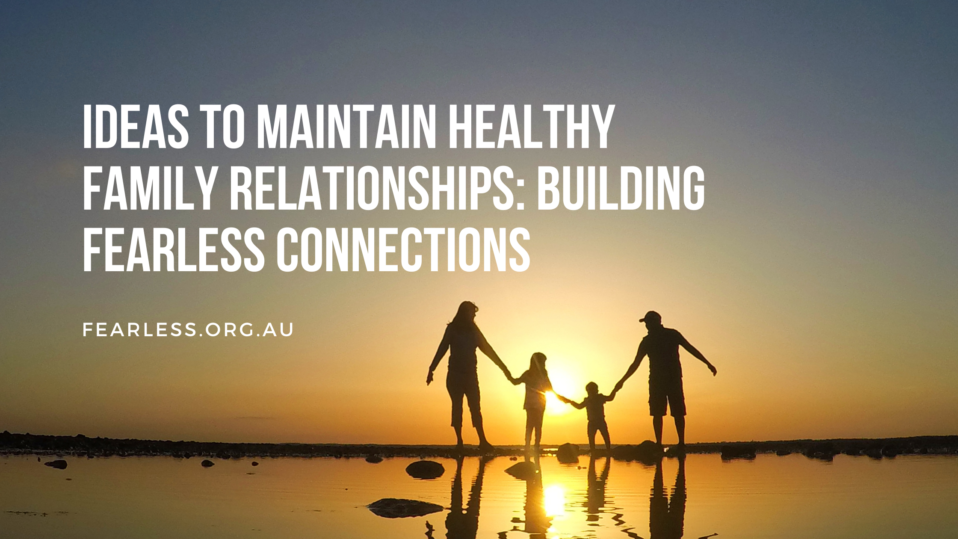In today’s fast-paced world, maintaining healthy family relationships is more important than ever. Strong family connections provide a sense of security, support, and emotional well-being. By implementing effective strategies, you can nurture a fearless environment that promotes mental health and overall family harmony.
In this blog post, we will explore practical ideas to maintain healthy family relationships, fostering a nurturing and supportive atmosphere for everyone involved.
- Effective Communication: Open and honest communication serves as the cornerstone of healthy family relationships. Encourage active listening, validate feelings, and express thoughts respectfully. By fostering clear and compassionate communication, you create an environment where family members feel heard, understood, and valued.
- Quality Time Together: Allocate dedicated time for bonding and shared activities. Engage in fun and meaningful experiences that create lasting memories. Whether it’s game nights, family meals, or outdoor adventures, spending quality time together strengthens the family bond and fosters a sense of togetherness.
- Respect and Empathy: Promote an atmosphere of respect and empathy within the family. Teach family members to value each other’s opinions, feelings, and personal boundaries. Encourage understanding and compassion, even during disagreements. By cultivating respect and empathy, you create a safe space where everyone feels accepted and valued.
- Conflict Resolution: Conflicts are inevitable in any relationship. Teach healthy conflict resolution skills to family members, emphasizing the importance of active listening, compromise, and finding mutually beneficial solutions. By approaching conflicts with a problem-solving mindset, you foster an environment that encourages open dialogue and supports resolution.
- Support and Appreciation: Express appreciation and support for one another regularly. Celebrate each family member’s strengths, achievements, and milestones. Provide emotional support during challenging times, fostering resilience and a sense of belonging within the family unit.
- Trust and Forgiveness: Build trust by being reliable, honest, and trustworthy. Encourage family members to share their thoughts and emotions without fear of judgment or betrayal. Practice forgiveness and let go of grudges, creating a compassionate and forgiving atmosphere that promotes healing and growth.
Nurturing healthy family relationships is vital for mental well-being and overall family harmony. By implementing these practical ideas, you can create a fearless environment where each family member feels valued, supported, and heard. Remember, healthy relationships require ongoing effort and commitment from all family members. Embrace these strategies and foster a strong family bond that will withstand the tests of time, promoting mental health and happiness for everyone involved.
By incorporating these strategies, you can maintain healthy family relationships, promote mental well-being, and create a fearless environment for growth and happiness. Start implementing these ideas today and watch your family connections flourish.
About FearLess
FearLess is a charity that works with people living with the consequences of post traumatic stress (often referred to as PTSD). We also help family members in any way affected by it. Our community members come from all walks of life including those living with PTSD and their families or people who want to do their bit to make the lives of people living with post traumatic stress more enjoyable and fulfilling. Our work complements the activities of other community-based organisations and government agencies that provide services to people with post traumatic stress.
This website has been established to provide information about PTSD to the Australian and New Zealand community. The website’s content is not intended to be a substitute for professional medical advice, diagnosis or treatment. You should seek the advice of an appropriately qualified healthcare professional before making decisions about your own circumstances. You should not disregard professional medical advice, or delay seeking it, because of any information contained on this website.



Post a comment